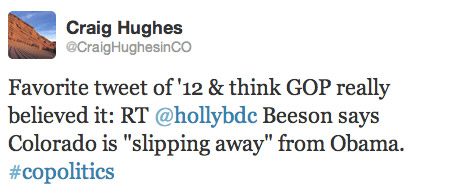It’s Time To “Get Serious,” Is It?
CBS News’ Brian Montopoli writes this morning:
Boehner and the rest of the House Republican leadership laid out their offer in a letter to the president earlier this week. It said Republicans would cut a total of $1.2 trillion in spending, but it does not actually say what would be cut. The letter broadly says that the cuts would follow those put forth in what was called “the Bowles plan,” a reference to Democrat Erskine Bowles, who quickly put out a statement saying that the letter does not represent his beliefs. (Republicans were referencing testimony that Bowles gave to the Joint Select Committee on Deficit Reduction last year. That testimony represented Bowles’ understanding of the midpoint between the two sides at the time; he noted Monday that “circumstances have changed since then.”)
Let’s give House Republicans the benefit of the doubt and assume they are calling for the cuts articulated last year by Bowles. His testimony called for roughly $600 billion in Medicare savings, in part from raising the Medicare eligibility age, $300 billion in other discretionary spending cuts, and $300 billion in cuts to other mandatory spending programs.
Despite GOP claims that they represent a middle ground, there is simply no reason Democrats would agree to these cuts. Here’s why: If the nation goes off the fiscal cliff, it faces $1.2 trillion in automatic spending cuts split between domestic spending and military spending. Republicans are effectively proposing to keep the cuts but focus them entirely areas that Democrats want to protect: Domestic spending and other entitlements. Meanwhile, under the GOP plan, there would be no cuts to defense programs — the area Republicans want to protect. Why on earth would Democrats agree to a deal in which all the cuts are made to their priorities when they could simply do nothing and let the pain be shared by both sides?
Now to be fair, Montopoli doesn’t completely single out Republicans for blame in the present impasse over a budget deal to prevent sweeping automatic budget cuts and tax hikes set to take effect at the end of the year. According to this analysis, President Barack Obama’s aggressive stand in favor of resetting the present 35% top federal income tax rate to the Clinton-era 39.5%–again, only on income over $250,000–is “far from what Republicans could swallow.”
But it’s at least a specific proposal; more than John Boehner can deliver.
When it comes to new revenue – aka, additional money coming into the government – Boehner has set a target of $800 billion. This is not insignificant: The offer has already prompted howls from some on the right who oppose any new revenue. But it is also less than substantive, since Boehner declines to say how he would make the cuts — he merely says they should come through “pro-growth tax reform that closes special-interest loopholes and deductions while lowering rates.” Does that mean getting rid of the mortgage interest deduction? Capping charitable deductions? The letter doesn’t say. [Pols emphasis]
With polling decisively indicating once again that intransigent Republicans will take the blame in the event of a failure to reach an agreement, what we have here is the equivalent of Paul Ryan’s infamous “budget with no numbers”–a proposal that really isn’t even a proposal, yet is nevertheless being insistently represented as a good-faith attempt at reaching an agreement.
Bottom line: both sides may be taking a hard line with a few weeks left to negotiate, but there’s a difference between doing so with specifics, and wasting everyone’s time. The polls say the public gets the difference, just as polls show that voters favor Obama’s proposal for raising taxes on high income earners while minimizing cuts to Medicare and Social Security.
With all this in mind, back to Boehner’s call to “get serious.”




